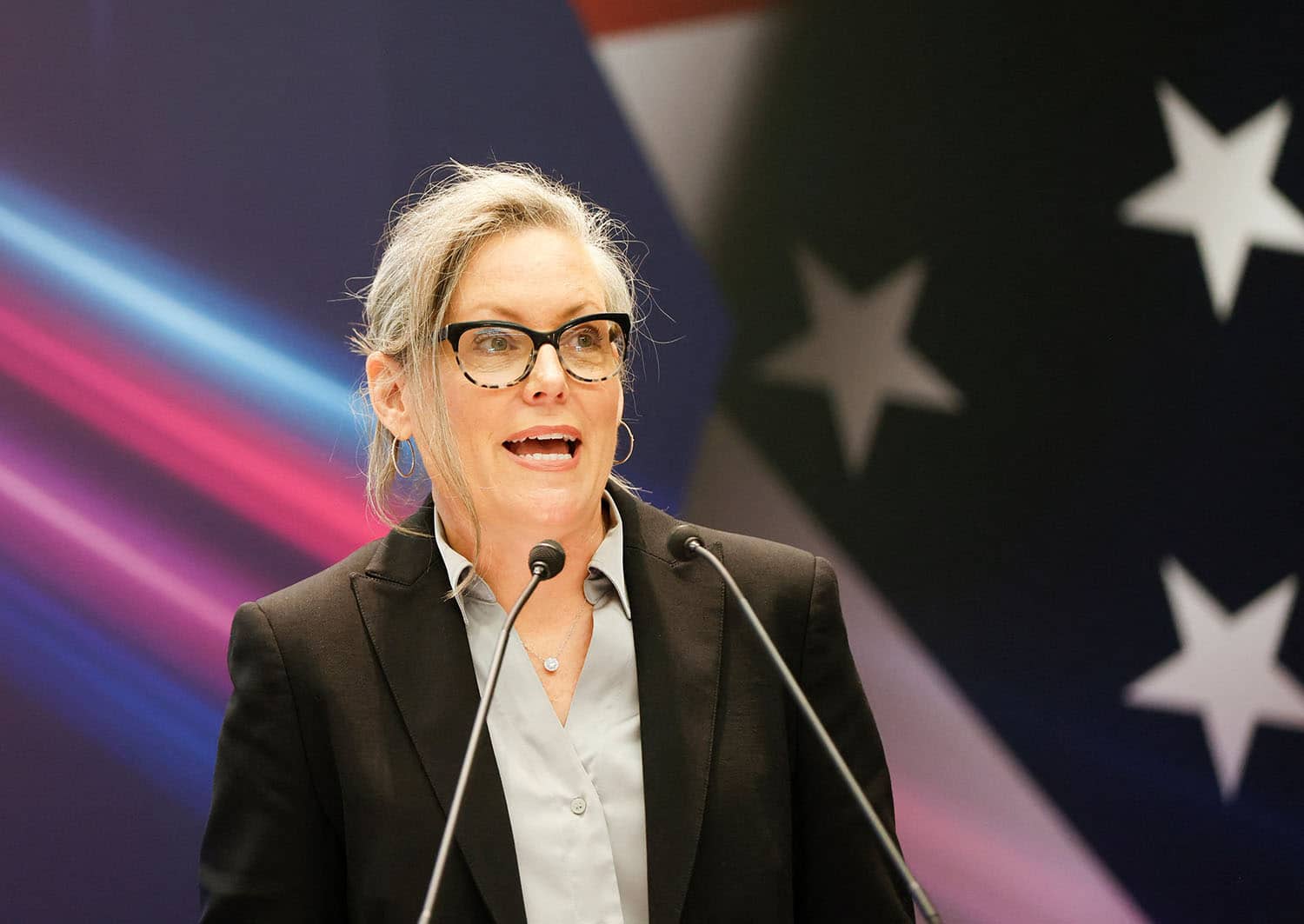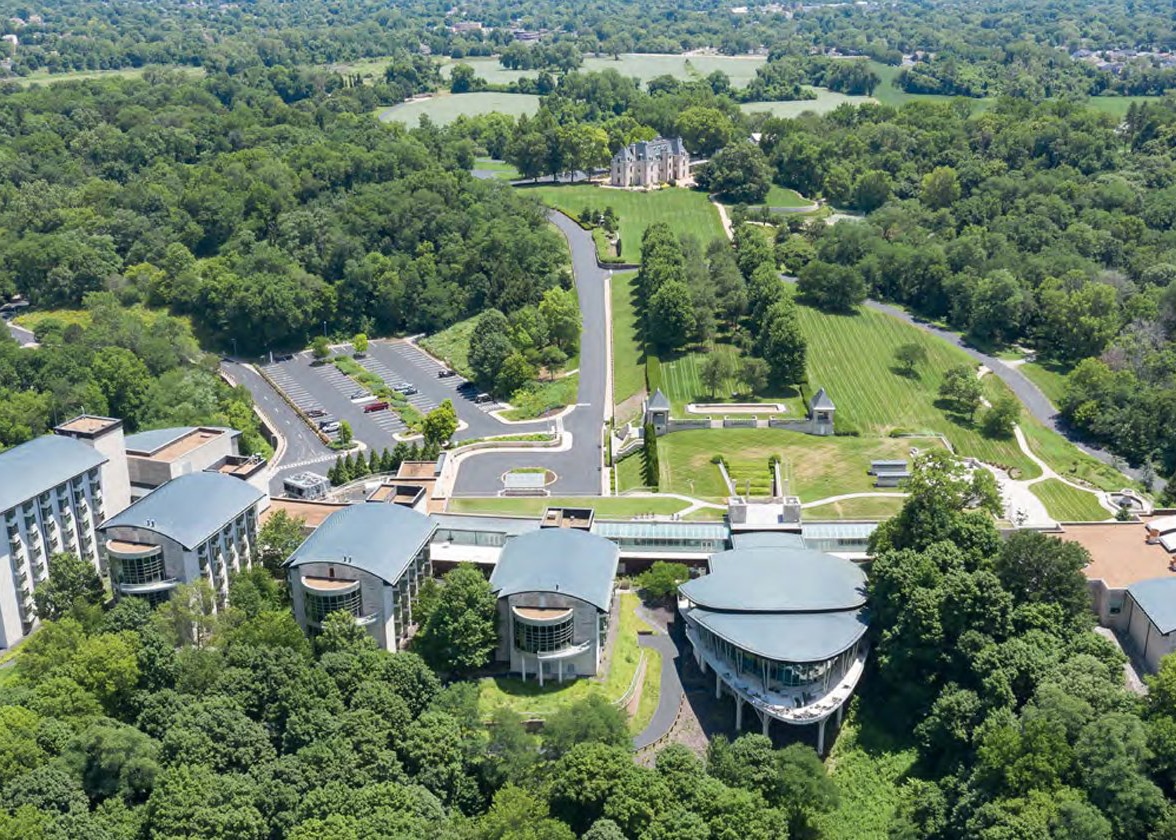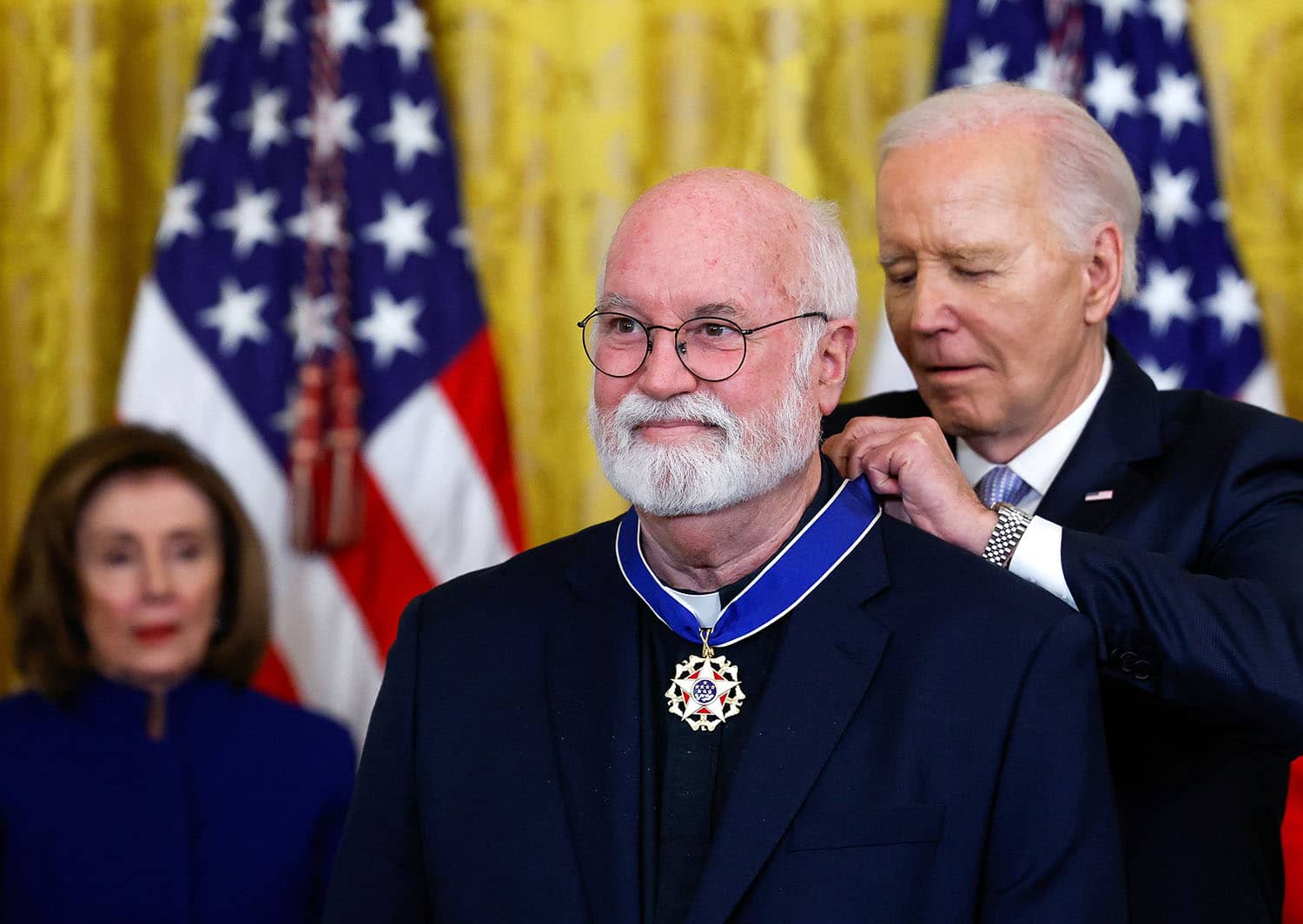(OSV News) — Democratic Gov. Katie Hobbs signed a measure to repeal Arizona’s near-total ban on abortions just one day after it passed in the state’s Republican-controlled Senate.
Arizona’s Republican-controlled House voted April 24 to repeal the state’s 1864 law banning abortion recently upheld by that state’s Supreme Court, and the state Senate followed suit May 1.
Repeal of Arizona’s abortion ban
At a May 2 signing ceremony, Hobbs said she was glad to undo the “the chaos and confusion caused” by the ban going into effect.
“Politicians do not belong in the doctor’s office. I know how hard these conversations can be, I’ve lived it myself,” Hobbs said. “And I know there’s no place for the government in that room. I trust that when it comes to these very personal decisions that you and your loved ones know what is best.”
It was not immediately clear when the bill would go into effect, as supporters argued a court should allow the repeal to go into effect before its current 90-day window after the legislative session ends.
The state’s 15-week limit, enacted in 2022, remains state law. However, Arizona may have the issue of abortion on its ballot in November, which could undo abortion restrictions in the state.
The Arizona Supreme Court ruled April 9 that the Civil War-era near-total abortion ban was enforceable following the U.S. Supreme Court’s 2022 reversal of the 1973 Roe v. Wade decision and related abortion precedents with the Dobbs v. Jackson Women’s Health Organization decision, in the absence of a legal mechanism blocking its enforcement. Not only is that law enforceable, that court found, but it rendered moot the state’s 15-week abortion ban that went into effect after Dobbs.
But the GOP-led Legislature in Arizona ultimately moved to repeal the Civil War-era ban after pushback, including from former President Donald Trump, the presumptive Republican presidential nominee.
Pro-life organizations react
Following the state Senate’s vote, SBA Pro-Life America recirculated a statement issued by its president, Marjorie Dannenfelser, following the state House’s vote: “We mourn for the loss of the children who would have been protected, and the mothers who would have received life-affirming help to address their holistic needs, under Arizona’s strongest pro-life law.”
Victoria López, director of program and strategy for the ACLU of Arizona, said in a May 1 statement, “We are relieved that lawmakers have finally repealed this inhumane abortion ban — something extremist politicians refused to do for far too long.
“Unfortunately, cruel abortion bans like the law from 1864 have been at the center of political stunts for years, causing lasting harm to people who need abortions and their providers,” López said. “Without further court intervention, Arizonans may still lose access to abortion care for months despite this eleventh-hour repeal. Politicians should never have this much power over our bodies and healthcare decisions. Voters need and deserve to take their power back with the Arizona Abortion Access Act this November.”
Political shifts and campaign positions
Republicans controlling the Arizona Legislature previously blocked repeal efforts after the state Supreme Court’s ruling. But Trump said during a campaign stop that the Arizona abortion ban “needs to be straightened out.”
“I’m sure that the governor and everybody else will bring it back into reason and that will be taken care of,” he said.
Arizona Republican Senate candidate Kari Lake — who described abortion as “execution” during her failed 2022 gubernatorial run — likewise took Trump’s position and expressed her opposition to the ban.
Of those two Arizona abortion laws, the 1864 law would have prohibited most abortions in the state. According to U.S. Centers for Disease Control and Prevention data from 2020, 93.1% of abortions were performed at less than 13 weeks gestation, meaning Arizona’s remaining 15-week ban would have a very limited impact on the occurrence of legal abortion.
Upcoming ballot initiative
Dannenfelser pointed to the likely ballot initiative coming in November in her statement.
“After months of confusion, the people of Arizona will soon have clarity on the state’s abortion laws: a 15-week protection for the unborn who can feel excruciating pain, with exceptions for life of the mother, rape, and incest,” Dannenfelser said, in contrast to abortion activists who she said had a goal “to repeal Arizona’s 15-week abortion law and replace it with a constitutional amendment that would allow unlimited painful late-term abortions in the fifth, sixth, seventh month of pregnancy and beyond.”
Dannenfelser said Lake “and all GOP candidates and elected officials must bring clarity to Arizona voters by campaigning vigorously in support of Arizona’s 15-week protection with exceptions and in opposition to the extreme no-limits abortion amendment.”
In a joint statement regarding the April 9 court ruling, the bishops of the Arizona Catholic Conference voiced their opposition to the upcoming ballot measure.
“This initiative, among other things, would likely remove most safeguards for girls and women that are currently in place at abortion clinics, permit a minor to obtain an abortion without parental involvement or permission, and allow for painful late-term abortions of viable preborn children,” the bishops stated. “We do not believe that this extreme initiative is what Arizona wants or needs, and we continue to pray that it does not succeed.”







